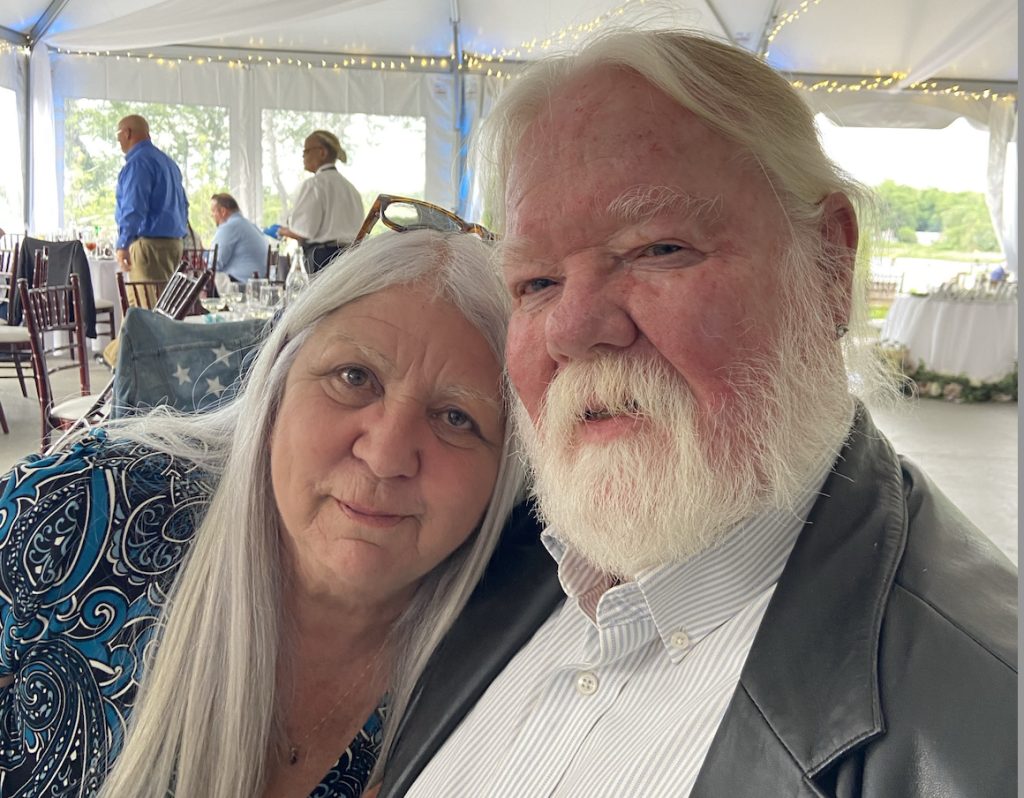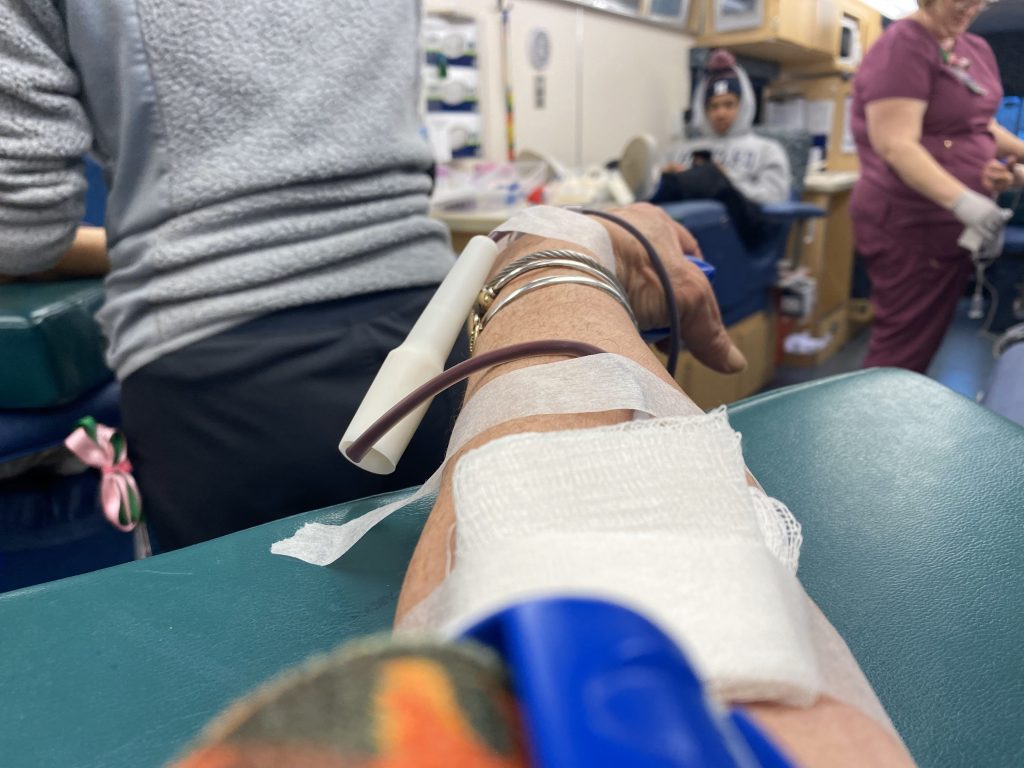In 2016, after donating platelets more than 100 times at the Kraft Blood Donor Center in Boston, Terry McKenna of Cedarville received disappointing news. Researchers discovered that some women who had previously given birth carry an extra antibody – human leukocyte antigen (HLA) – that can harm patients who receive their platelets.
Terry, a mother of three, tested positive for HLA. No more donating platelets, although she was assured that her previous donations had never harmed anyone.
After giving what amounted to 150 gallons of platelets, Terry was understandably heartbroken.
Time for an important disclosure: Terry is my sister. In 2010, our brother, Fran, was at Brigham and Women’s Hospital in Boston. Fran was recovering from a stem cell transplant when an infection attacked his heart. He was put on an artificial heart pump to regulate his failing heart. When one pump didn’t work, they put him on two.
We felt helpless and anxious as we waited to see if his heart would beat on its own again. Terry took a walk and wandered into the Kraft Blood Donor Center for the first time. She would go there religiously for the next six years, making the trek from Cedarville to downtown Boston every other Saturday morning. (You can give platelets more often than whole blood.)

Fran eventually recovered from the heart infection. We weren’t surprised. The phrase “battling cancer” gets tossed about, but in this case, it was true – Fran was a warrior. He was diagnosed with Ewing’s sarcoma as a 5-year-old, one of the first Jimmy Fund patients at Dana Farber. He would go cancer-free for more than 40 years before being diagnosed with non-Hodgkins lymphoma. There would be more cancer, which led to the stem cell transplant, followed by more cancer. His journey was both inspirational and heartbreaking because Fran was a wonderful father, husband, brother, and friend.

Even after Fran died in 2015, Terry continued to donate – finding purpose and some solace in those Saturday mornings hooked up to a machine that removed live-saving platelets from her blood. She was competitive about it, too. I went with her several times, and she never missed an opportunity to point out that she produced more platelets than I did.
When she was told she couldn’t give any more, it would have been easy to walk away feeling good about the difference she made.
She wasn’t done.
“I had to do something besides moping about not doing platelets anymore,” Terry said.
In December 2019, Claire Zisserson, an 8th grader at Rising Tide Charter School, was killed in a horrific crash in Pembroke that also seriously injured her classmate, Kendall Zemotel. Terry found purpose in the tragedy. She held her first blood drive with Boston Children’s Hospital’s mobile blood van in memory of Claire and to honor Kendall’s recovery.
She’s made a point to schedule a blood drive every December since in tribute to Claire and Kendall. Terry also holds one in September, which is Childhood Cancer Awareness Month, in Fran’s memory.
She holds three others throughout the year (five in total) with the first one of 2024 coming up on Thursday, Feb. 22, from 10 a.m. to 3 p.m. in the Little Red Schoolhouse parking lot. You can sign up for the February drive here.

Giving blood is easy and it’s fairly quick. The time on the bed hooked up to a collection bag is typically about 10 minutes. The paperwork and pre-screening take about 30 minutes.
“A lot of people are nervous about donating. They wonder how long it will take,” Terry said. “The whole process takes about 45 minutes with giving blood being the quick and easy part.” Once donors are done, they usually walk away with some swag like a shirt, mug, or bag along with the heroic feeling of saving lives and some slight dizziness.
Between appointments and walk-ins, the drives collect more than 40 pints for Children’s Hospital. Terry is hoping that a Saturday event in June can top 50 (there’s that competitive spirit again) because more people are off work and the van will be at the schoolhouse for an extra hour that day.
And the need? Well, anyone who has ever given blood can tell you that not a day goes by where there isn’t a text or email imploring them to donate because of a shortage. The American Red Cross, the nation’s largest collector of blood, reports on its website that so far in 2024 the number of donors is at its lowest in the last 20 years, even as demand grows.
One pint of blood can save up to three lives and Terry gets to donate because HLA – the antibody that ended her platelet-giving days – does not affect whole blood. “That’s a really good feeling,” she said.
George Brennan worked as a reporter and editor at Memorial Press Group, including the Old Colony Memorial, from 1985 to 2004.

